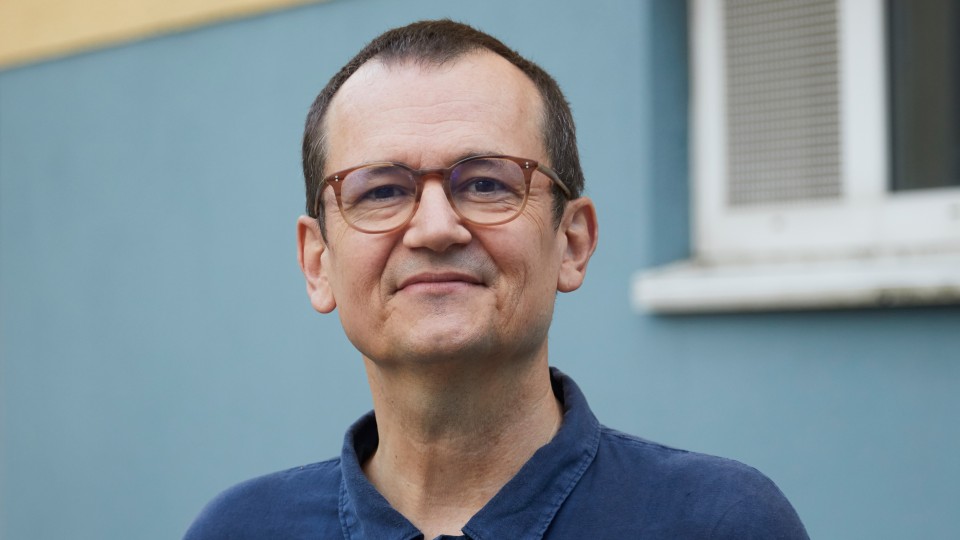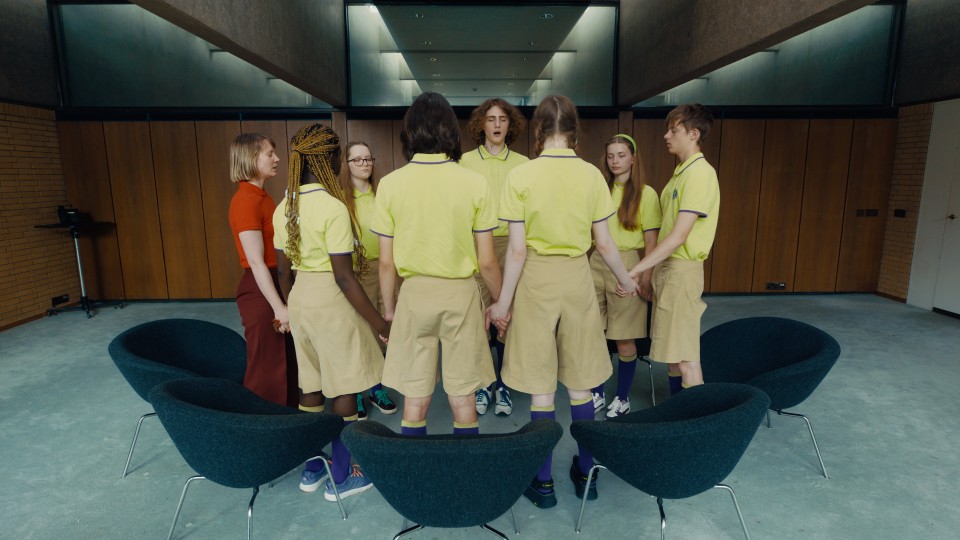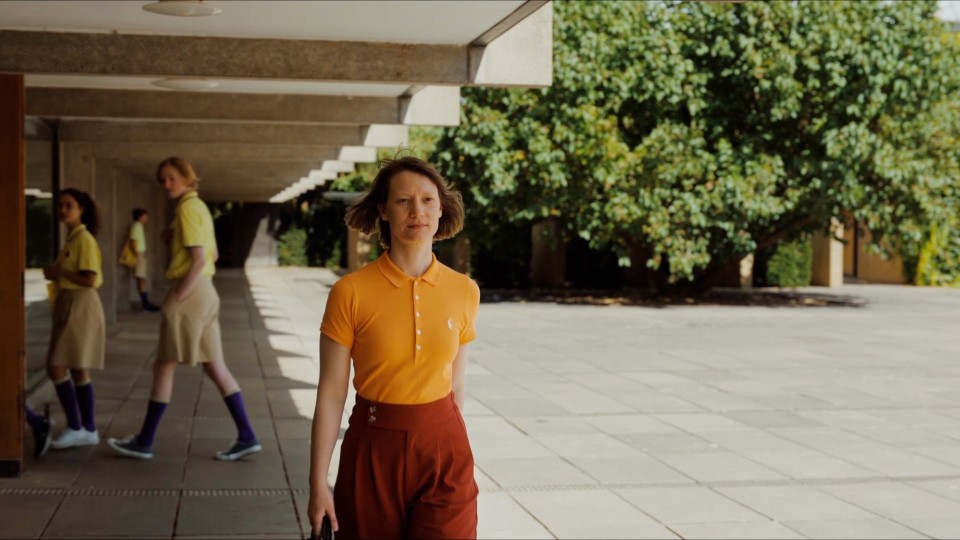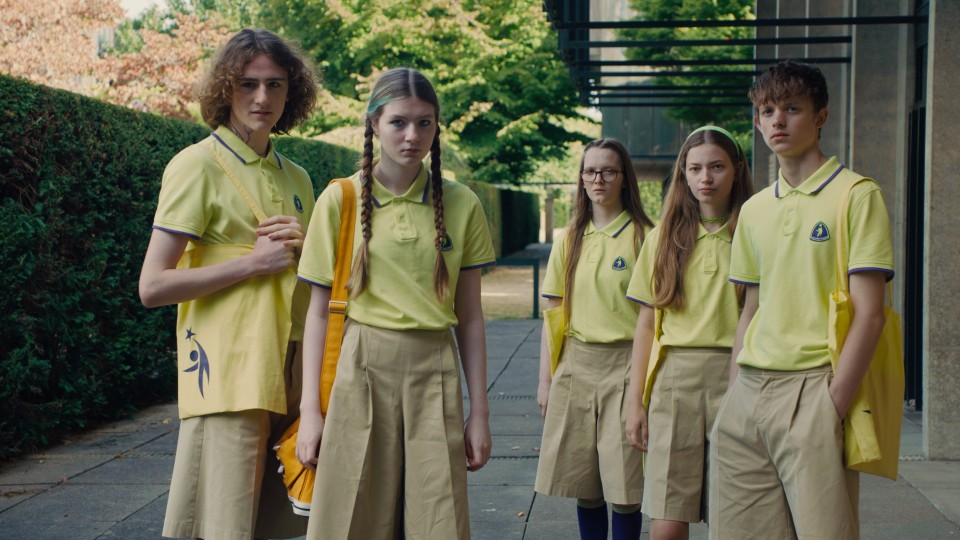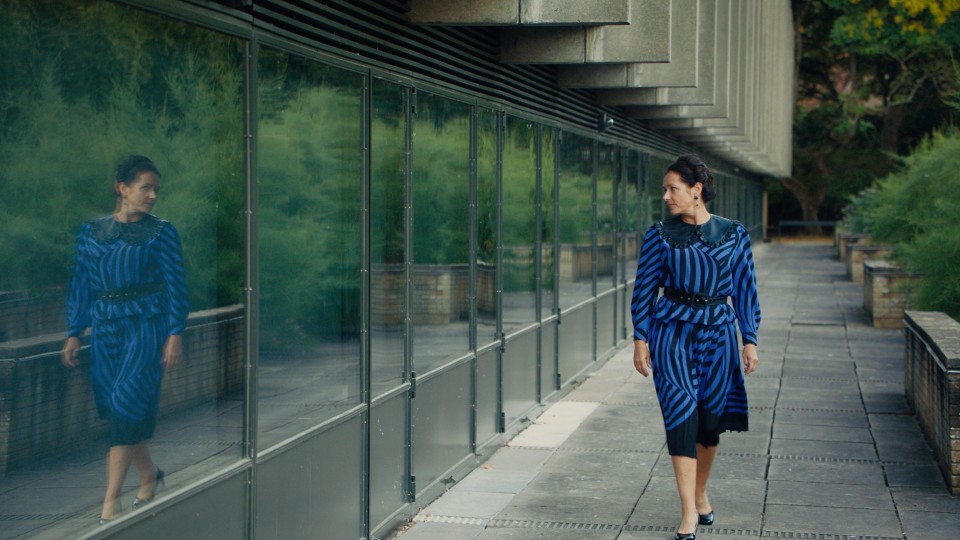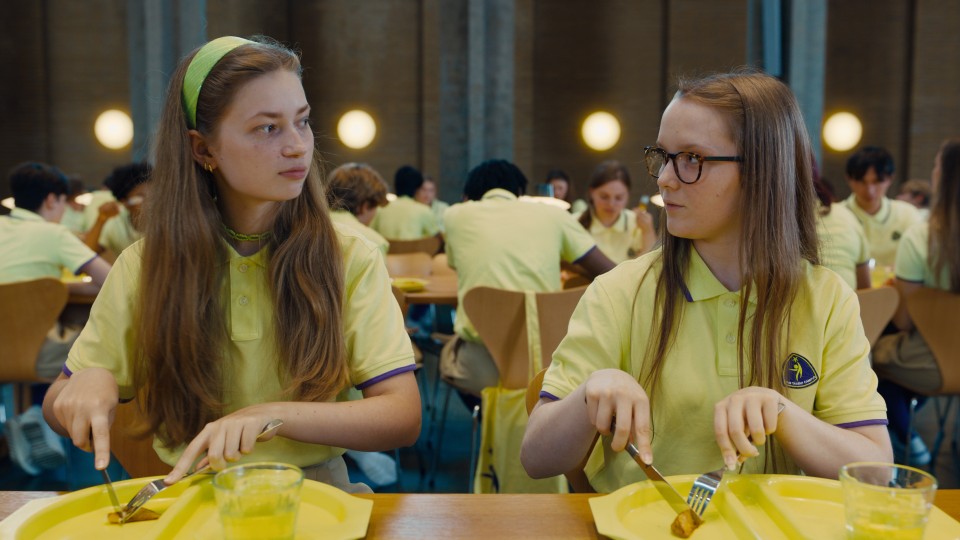Seldom does a film score have such a distinctive character as that of Jessica Hausner's CLUB ZERO. Sometimes it adopts a contrasting position to the European setting of the film, while at others it is self-confidently in
the foreground of the action. It is intriguing, touching and surprising.
A conversation with Markus Binder, winner of the 2023 European Excellency Award in the European Original Score category for
the film music for CLUB ZERO.
You created all the film music for Jessica Hausner's CLUB ZERO. In fact, having a dedicated score throughout the film is an
innovation in Jessica's cinematic oeuvre. How do you feel about film music in general? How did you and Jessica Hausner arrive
at the joint decision that CLUB ZERO needed composed music?
MARKUS BINDER: Our first collaboration, involving music and visuals working together, was the music video Oida, with music by Attwenger,
which Jessica Hausner directed. It demonstrated to us – on a creative couple level – that we could cooperate very well. For
Little Joe, Jessica asked me if I had something suitable for the film’s closing credits. That's how the song Happiness Business
came into being; it worked well as credits music. When she was starting preparation for the new film, CLUB ZERO, she suggested
I should do the music for the whole film. I was very happy to accept this offer, which leads me to the second part of the
question: since we often attend festivals and also watch many films via streaming, I’m very aware of current developments
in film production, which also includes film music. As a musician, naturally I have an ear for that, and I find it interesting
to consider the issues involved: to what extent – intentionally or unintentionally – does the music reinforce the story or
theme of a film? Could this effect perhaps be improved? Would I be able to think of an alternative? I have always thought
it would be a fascinating challenge to do a film score myself.
The common view of film music is that it amplifies emotions. In CLUB ZERO, the music does often draw you into the emotion,
but at other times it reinforces distance to the action or the characters. Does the tension between these techniques indicate
your approach to film music?
MARKUS BINDER: There are several overlapping ideas and lines of thought here. In her films, Jessica usually adopts the position of not reinforcing
the emotional aspects but observing them from a distance instead. And naturally that applies to all the aesthetic elements
of the film, including the music. This approach suits me just fine, because it has allowed me more freedom – in what I do
and in thinking about how sounds work. Jessica emphasizes that she doesn't want film music to be background decoration; instead,
she wants it to exist as an independent, self-confident element in the film. Since we talk a lot about what we're working
on, I followed the development of the script. And as a result, I got my first ideas at a very early stage. One of these was
that instead of a commentary on the narrative or background music, I would try to introduce an element that comes from somewhere
else entirely but in aesthetic terms combines with the film in an interesting way. The film is obviously set in a Western-oriented,
European environment. So I thought it would be interesting to create a sound that’s not so typically European. I have a collection
of instruments that has grown over the decades and expanded in the course of various Attwenger tours; I’m thinking of Siberia,
Vietnam or Zimbabwe, where I have always discovered music and instruments and also the ways people play them. I always find
it absolutely fascinating to move beyond our European context and see that there are completely different ideas about making
music: other sounds, other harmonic sequences. I thought that would be interesting, and the first step was to see what I could
get out of the instruments I had collected.
Would it be fair to say that, on the one hand, the continuous reduction of food intake – which moves towards absolute zero
– and on the other hand, Ms Novak's religious, ritual approach to her teaching, provided the motifs for the music?
MARKUS BINDER: The principle of reduction is where Jessica and I meet artistically. In Attwenger I also adhere to the motto reduce to the
max. When it came to the soundtrack, too, my approach was not to overload things, but to employ a pure, reduced and direct
approach to the recording. I positioned the microphone extremely close to the instruments, so you can hear the touching, and
so the direct, crisp tones stringed instruments can have when you play them with a plectrum really come across. In places
I added electronic beats, and the choral voices were also an essential element of the whole soundtrack. I was guided here
by the idea of working with voices that don't verbalize anything, in contrast to what I usually do: language plays a central
role in Attwenger and in my books. Creating purely instrumental music was also a very different experience, naturally in the
context of the spoken text of the film. I have problems with the ritual aspect insofar as I’m suspicious of all religions
and beliefs. Music and humming sounds in particular are familiar from a wide variety of religions; they are felt to provide
emotional reinforcement of religious feelings. That's why I tried to implement the ritual things in the film music in such
a reduced way that you can derive from it an anti-religious approach, so to speak.
Did you play all the instruments yourself?
MARKUS BINDER: Yes. I have a studio in Linz where I very often work. It turned out that the idea of working on the music before the editing
had been completed was very useful and productive. Karina Ressler, the editor, and Jessica were in the editing room, which
is just around the corner from our apartment. I would regularly join them there, and we’d go through the scenes step by step,
looked at what might fit where. There were scenes where the two of them specifically said they’d like drums, or places where
they wanted a choir, or a combination of both. Sometimes we’d fall back on music that already existed, while for other scenes
I just started composing. And so on. During the editing process, I put together a set-up in my studio in Linz, a kind of tent
with string instruments and drums. Then I hung blankets there and added foam for insulation, so everything sounded nice and
dry. It was also in the spirit of reduction that we managed as far as possible without any reverb. That makes things dry and
clean. So I commuted between the editing room in Vienna and the studio in Linz; sometimes I recorded things while watching
the film on the computer, played over music that had already been recorded – basically I played an orchestra on my own. I
immersed myself very deeply into the whole thing, for a very long time, and then I’d see in the editing room how the music
worked together with the film and correct it again until the final version came into being.
There are a lot of moments of silence in the film. How do you decide where to put music?
MARKUS BINDER: We did a lot of shifting things around. Karina started to edit not only the images but also the soundtrack. This direct exchange
during the editing process was a very pleasant experience. It was fascinating to try out different things, to see how much
a scene changes when music is added, or to discover how different the effect is when you add drums or string music. It constantly
amazed all three of us what an incredible effect the combination of visual and audio creates. Of course, you always have to
take a step back in the editing process, disregard this fascination and look at it 15 times, change it again or make sure
that it’s appropriate, lengthen some parts, shorten others. There is a lot of detailed work involved.
There are a few existing pieces of music in CLUB ZERO. How did this selection come about?
MARKUS BINDER: In one case we had to decide which piano piece we should choose for the young people's performance evening. We listened to
various solo piano pieces. I was in favour of using something by Josef Matthias Hauer, because his story is also interesting.
He invented twelve-tone music. The piece was a perfect fit. It comes across very well in the film, and in retrospect I think
it's very nice that we were able to feature this personality in the film; he doesn’t really get the attention he deserves
in the history of music. The other piece is I Wanna Dance with Somebody, originally by Whitney Houston; we used the very slow version by the Australian musician Scott Mathews, with whom we once
appeared with Attwenger at the Vienna Gartenbaukino, where he performed this song live. Jessica was also there that evening,
and our relationship with this really beautiful song has quite a long history – which continued with its selection for CLUB
ZERO.
Has this experience made you more interested in film music for the future?
MARKUS BINDER: We'll have to see if the European Film Award leads to other productions being interested in me doing the film music. My general
feeling about film music is that often something’s lacking. My impression of the last few years has been that even in the
arthouse sector the music is quite formulaic, with a lot of piano. Again and again, I end up thinking to myself "That was
the same as the other film", as if there is a convention that must be adhered to. I can’t imagine that this is in the interest
of the people involved. The fact that my music has received this award presumably also means that a sound which isn’t at all
conventional is appreciated and sought-after. If further projects did arise, I would be very pleased.
Does film music ultimately make you, as a musician, look at music in a different light?
MARKUS BINDER: Definitely. It's music that works contextually, and it’s connected to so many factors that play a role in a film, as opposed
to music that you create to exist on its own. I would love to continue and develop the work on the sound I did for CLUB ZERO.
I can still imagine a huge amount of potential, in all possible directions.
Interview: Karin Schiefer
November 2023
Translation: Charles Osborne

